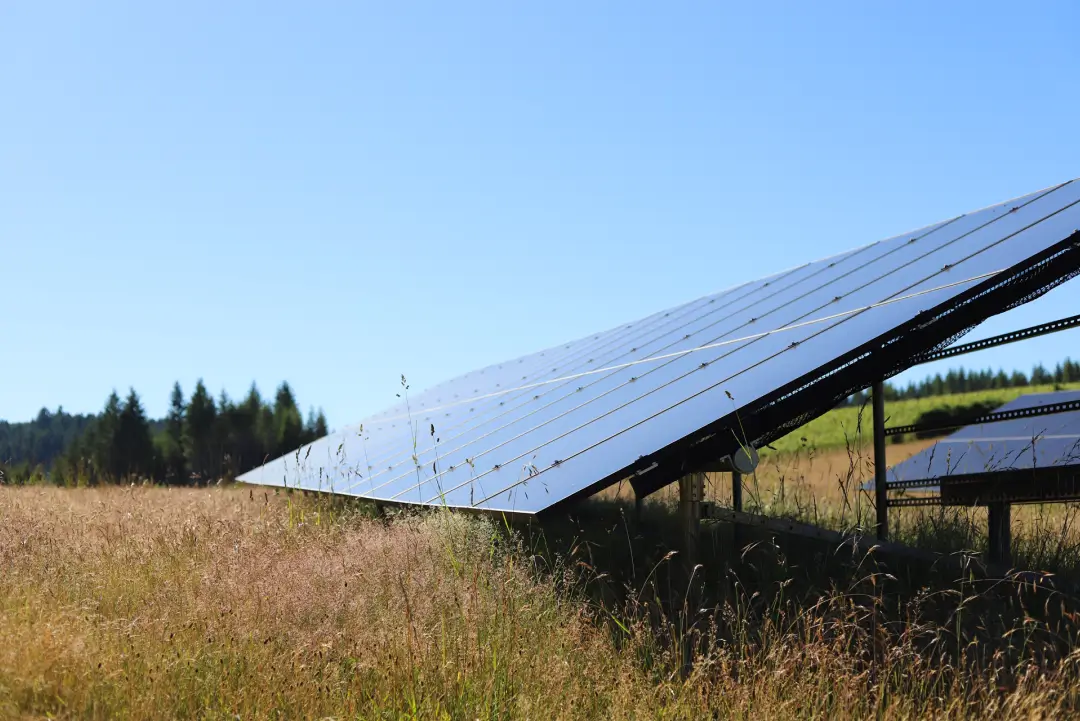Solar panels are a popular and sustainable source of energy that has gained increasing popularity over the past few decades. These devices harness the energy from the sun’s rays and convert it into usable electricity. But how do solar panels create electricity? We will explore the inner workings of solar panels and how they produce energy below.
The solar panels you see on rooftops and in fields are made of photovoltaic (PV) cells made from silicon or other materials with special electrical properties. When sunlight hits the PV cells, electrons in the material become excited and move around. This movement of electrons generates an electric current, which can be harnessed as electricity.
How Do Solar Panels Produce Electricity
To better understand how solar panels create electricity, we will look at the structure of the PV cell. Each PV cell contains two silicon layers: one layer with an excess of electrons called the N-type layer, and one with a deficit of electrons called the P-type layer. When sunlight hits the cell, it knocks electrons out of the N-type layer and into the P-type layer, creating a flow of electrons. This flow of electrons is directed by the metal contacts on either side of the cell and creates a direct current (DC) of electricity.
However, the DC electricity generated by the PV cell is not directly usable by most household appliances and devices, which require alternating current (AC) electricity. To make the electricity generated by solar panels usable, it must be converted from DC to AC. An inverter does usually installed as part of the solar panel system. The inverter takes the electricity generated (in DC form) by the solar panels and converts it into electricity (in AC form) that your home or business can use.
Once the electricity has been converted to AC, it can power your home or business or feed back into the grid. When solar panels generate more electricity than you need, the excess can be sold back to your utility company, allowing you to earn credits on your energy bill. This is known as net metering and is an important aspect of many solar panel systems.
Yes, Solar Panels Produce Electricity Without Direct Sunlight
But how do solar panels continue to produce electricity even when the sun isn’t shining? While solar panels produce the most energy when exposed to direct sun, they can still produce some energy on cloudy or overcast days. This is because PV cells can still generate electricity from the diffuse light that filters through the clouds.
Moreover, some solar panel systems incorporate batteries that store excess energy generated during the day. This stored energy can then be used at night or when solar panels are not generating enough energy, such as on cloudy days. The batteries also serve as a backup power source in a power outage, particularly important in areas prone to natural disasters.
Solar Panels = Sustainable & Renewable Energy
Solar panels are a sustainable and renewable energy source that converts sunlight into usable electricity. PV cells, made from unique materials, generate a flow of electrons when sunlight is exposed, which an inverter converts from DC to AC electricity. Solar panel systems can also incorporate batteries to store excess energy for later use. By understanding how solar panels create electricity, we can appreciate the technology behind this eco-friendly energy source and make informed decisions about incorporating it into our daily lives.
Would you like to know more about solar panel installation and how it can help power your home? Contact Purelight Power today for a free no, obligation roof review.





